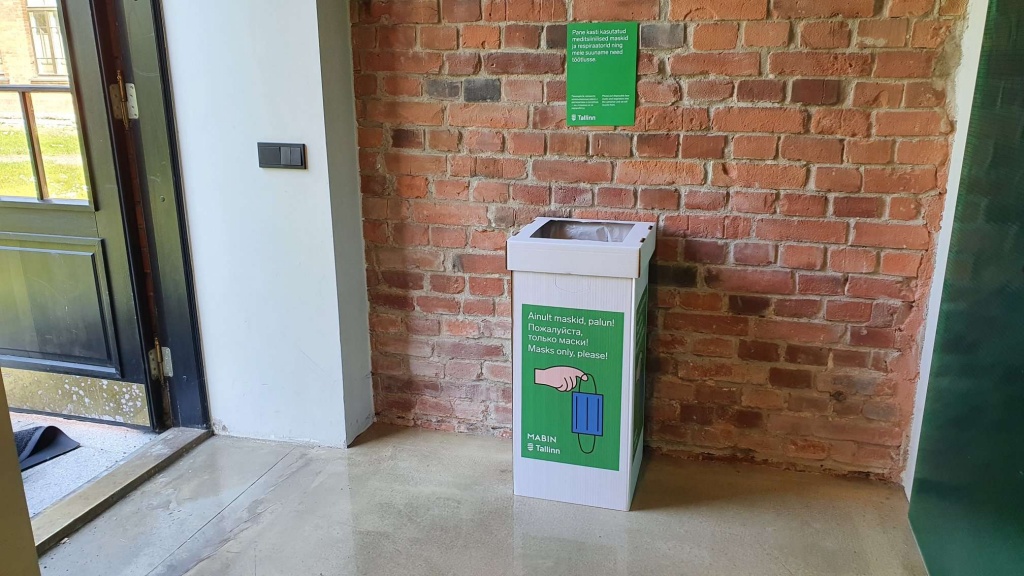Tallinn has recycled a quarter of a million face masks
In Tallinn, a total of around 250,000 disposed medical masks and respirators have been collected in five months in mask collection bins and then diverted for reprocessing.
“We have seen in all locations of the collection bins that people eagerly dispose of face masks in the collection bins and that the bins do not contain much other waste,” said Ester Öpik, coordinator of Tallinn coronavirus prevention measures. “I am pleased to see that in schools especially, the use of the mask bins has been enthusiastic and effective. Although relatively small amounts of masks are accumulating in schools, the mask collection bins there really only contain disposed masks.”
The mask collection bins with the special Tallinn design have been placed in the city’s administrative offices, densely populated public spaces, sports centres, educational institutions, youth centres, social centres, vaccination points, polling stations and health care facilities. The collected masks are recycled and become raw material for new plastic products, such as pipes.
Since July this year, one hundred Tallinn mask collection bins have been in use at a total of 105 locations and have been emptied more than 200 times. From the collection bins, the masks are transported for recycling.
During the summer months, the highest number of masks were collected at the first three vaccination points – the Tondiraba ice rink, the Sõle sports centre and the Kaja cultural centre. Theses mask bins collected a total of 5,000 litres of masks, or approximately 25,000 disposed masks.
In August, a considerable number of masks were collected at the Zoo, the Botanical Garden, sports centres and health care facilities. In October – during the local elections – there was an active use of mask collection bins placed at polling stations.
Under a contract with the city, the mask collection bins are positioned and emptied by Hyperon OÜ. With this initiative, Tallinn not only aims to reduce plastic pollution, but also to raise awareness of environment protection, encourage people to adopt new solutions, and set an example in promoting and implementing the principles of the circular economy.

